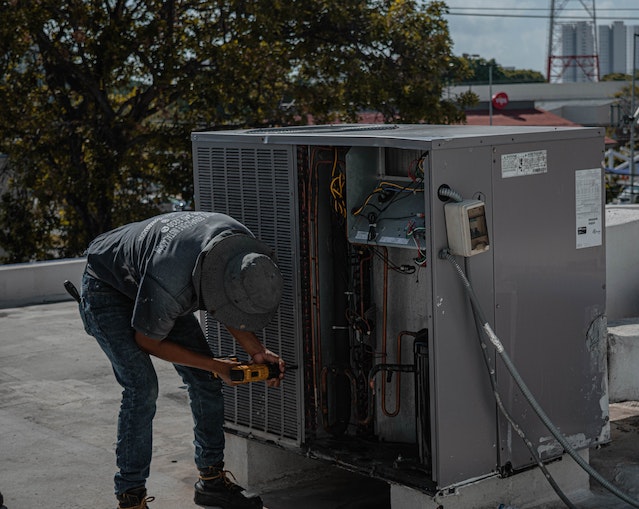
Introduction
Welcome to our comprehensive guide on heat pump installers. If you’re in need of an efficient and reliable heat pump installation in Toronto, you’ve come to the right place. In this article, we will delve into the intricacies of heat pump installations, discuss their benefits, and provide essential tips to ensure a successful installation process. Our goal is to equip you with the knowledge needed to make informed decisions when choosing a heat pump installer that meets your specific requirements.
Understanding Heat Pumps
Heat pumps are innovative heating and cooling systems that transfer heat from one location to another, making them incredibly energy-efficient. They work by extracting heat from the air, ground, or water source and transferring it to your home or building during colder months. In warmer months, the process is reversed, with heat being removed from your indoor space and released outside, providing effective cooling.
The Importance of Professional Heat Pump Installers
When it comes to heat pump installations, hiring a professional installer is of utmost importance. Proper installation plays a critical role in maximizing the efficiency and longevity of your heat pump system. A skilled and experienced heat pump installer will ensure that the system is correctly sized, properly connected, and calibrated to deliver optimal performance.
Factors to Consider When Choosing a Heat Pump Installer
1. Experience and Expertise
One of the key factors to consider when selecting a heat pump installer is their experience and expertise. Look for installers who have a proven track record in the industry and possess the necessary certifications and licenses. A reputable installer will have in-depth knowledge of various heat pump models, installation techniques, and best practices.
2. Customer Reviews and Testimonials
Reading customer reviews and testimonials is an excellent way to gauge the quality of service provided by a heat pump installer. Check reputable review websites and testimonials on their website to gain insights into the installer’s professionalism, timeliness, and customer satisfaction levels. Positive feedback from past customers is a strong indicator of a reliable and reputable installer.
3. Warranty and Maintenance Services
Consider heat pump installers who offer comprehensive warranty packages and maintenance services. A reliable installer will stand behind their workmanship and provide warranties that cover both parts and labor. Additionally, inquire about their maintenance services, as routine maintenance is crucial for the optimal functioning of your heat pump system.
4. Energy Efficiency Expertise
Opting for a heat pump installer with a focus on energy efficiency can significantly benefit your long-term savings and environmental impact. Look for installers who are knowledgeable about energy-efficient practices, such as proper insulation, ductwork, and system sizing. Their expertise will ensure that your heat pump operates at its highest efficiency, reducing energy consumption and lowering utility bills.
The Installation Process
A professional heat pump installation involves several essential steps to ensure a seamless integration of the system into your home or building. Here’s a brief overview of the installation process:
1. Site Assessment and Planning
The installer will conduct a thorough assessment of your property to determine the optimal location for the heat pump unit. Factors such as available space, accessibility, and proximity to the heat source are taken into consideration during this stage.
2. Sizing and System Selection
Based on your heating and cooling requirements, the installer will determine the appropriate size and type of heat pump system for your property. Proper sizing is crucial to ensure optimal comfort and energy efficiency.
3. Ductwork and Piping Installation
If your heat pump system requires ductwork, the installer will design and install it to distribute conditioned air throughout your home. For ground-source or water-source heat pumps, underground piping may be necessary to facilitate heat transfer.
4. Electrical Connections
The installer will connect the heat pump system to your electrical supply, ensuring all connections meet safety standards and local electrical codes. Proper electrical connections are essential for the safe and reliable operation of the system.
5. System Testing and Calibration
Once the installation is complete, the installer will thoroughly test the system to ensure it functions optimally. They will calibrate settings, check for proper airflow, and verify that the heat pump is heating and cooling effectively.
6. User Training and Handover
Before concluding the installation process, the installer will provide you with detailed instructions on operating and maintaining your heat pump system. They will answer any questions you may have and ensure you feel confident in utilizing your new system.
Summary
In conclusion, choosing the right heat pump installer is crucial for a successful and efficient installation process. By considering factors such as experience, customer reviews, warranty offerings, and energy efficiency expertise, you can make an informed decision and enjoy the benefits of a well-installed heat pump system. Remember, investing in a professional installation ensures optimal performance, energy savings, and long-term reliability.
Now that you have a comprehensive understanding of heat pump installers and their importance, you can confidently embark on your journey towards finding the perfect installation partner. Make an informed decision, prioritize quality and expertise, and enjoy the benefits of a properly installed heat pump system for years to come.







